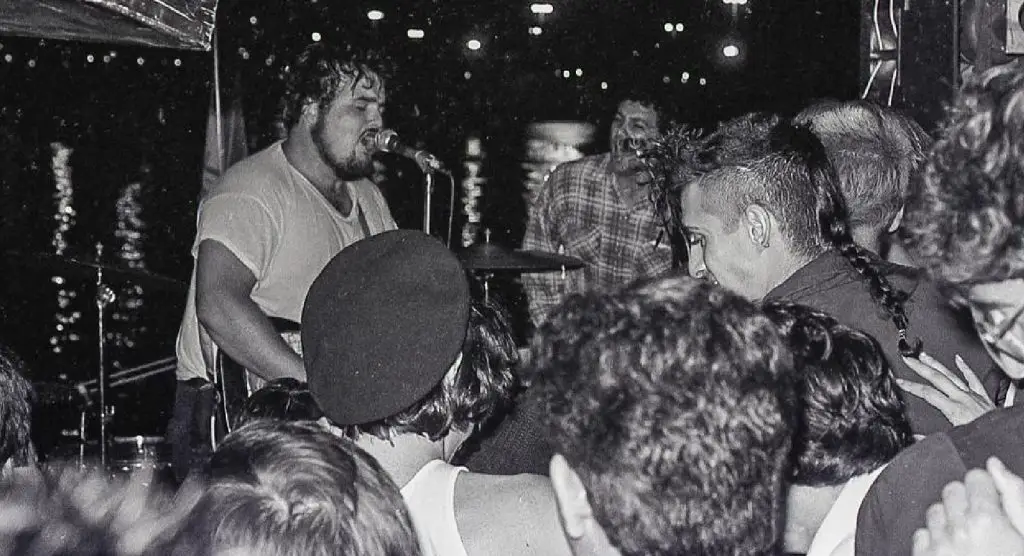
An aspiring documentary filmmaker uncovers a web of intrigue, deception, and possible murder when his female assistant abruptly vanishes. Brandon Colvin’s Frames utilizes the techniques of film-within-a-film, and found footage, as it explores the mind and motives of Peter Farkas (Holland Noël), the filmmaker in question.
Frames opens upon the bespectacled Farkas’ awkward attempts at an art-documentary, shot in the streets of White River, Wisconsin. Assisted by his school-chum, Vera Kanan (Maria Travis), Farkas shoots banal street scenes of buildings, train tracks, the river and the back of a lone painter. He seems obsessed with the emptiness of place, and moves about as an automaton, devoid of emotion—even when it comes to the obvious sensuousness of his assistant. The beautiful Kanan, also seemingly robotic in speech and movement (though steps ahead of Farkas in articulating her feelings), tells Farkas that his movie would be far more interesting if she were the star. Appalled that Farkas doesn’t know the films of Alfred Hitchcock (aside from Psycho), she loans him her copy of Rear Window as a means of igniting passion and suspense into her friend’s project about nothing.
While extremely well written, philosophically derived and astute in the cinematic structure and flavor of Jean-Luc Godard and Michelangelo Antonioni, Frames is a tough film to view. This is primarily due to the fact that Colvin’s intent of shooting through the obsessed mind of his principal character does not take heed of his poor audience. Viewers must not only struggle to see what’s happening in extremely darkened spaces, but must also contend with overly lengthy takes of everything from buildings to the torso of Kanan looking at the contents of Farkas’ camera.
It is at those moments of camera-stalls that Colvin’s well meaning narrative-objectives become complicated, as his lens focuses at overly long intervals upon virtually every physical structure and character in the movie—and we’re not sure why. Still, even these seemingly horrific cinematic defects, magically, cannot spoil Colvin’s movie, which is so rich in suspense, character and ambiguity, that we are compelled to take notice, no matter how hard we protest.
Frames is a movie that should definitely be seen more than once, much like the works of Godard and Antonioni. It should also not be the least surprising if this strange little shocker achieves cult classic status, as each viewer sets out to discover the film’s Holy Grail.
This film was submitted for review through our Submission for Review system. If you have a film you’d like us to see, and we aren’t already looking into it on our own, you too can utilize this service.

You can watch FRAMES for free via No Budge: http://nobudgefilms.com/post/42965209206/frames